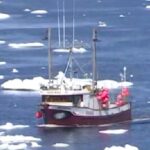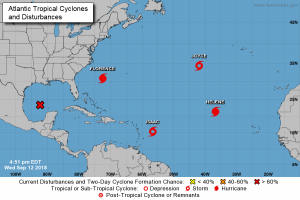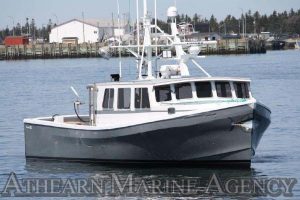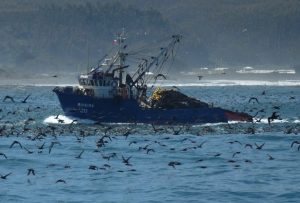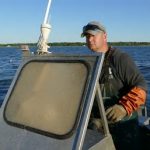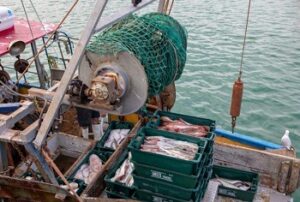Tag Archives: “Days at Sea”

New England scallopers face a tough 2025
New England scallopers are looking at another tough year in 2025, as they prepare for a set of federal regulations to protect both their livelihoods and the Atlantic Ocean’s scallop populations. If approved by NOAA Fisheries, the new rules, called Scallop Framework 39, will reduce the number of times that full-time vessels can go drag in some federally-managed scalloping grounds — called “access areas” — in the 2025 fishing year. But they will allow these vessels more time to scallop in the open ocean. The start of the access-area scalloping season will also be pushed back from April 1 to May 15, 2025. It will end on March 31, 2026. Local scallopers and industry representatives say the contents of Framework 39 are not a surprise. Landings have been shrinking over the past four years. “We’re just tightening the belt, and taking a deep breath, and riding the storm out,” said New Bedford scallop vessel manager and owner Tony Alvernaz. more, >>CLICK TO READ<< 17:50
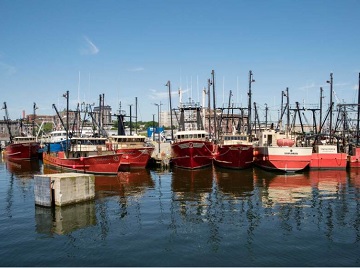
Investigation reveals private equity firms dominate the New Bedford fishing industry
A debate is raging in the local scallop industry about whether fishermen should be allowed to lease their permits. Supporters say the proposal could help fishermen with a small catch share, or those who can’t get out to sea, stay in the business, because they could lease their permit to another captain. Opponents worry it would allow big companies to consolidate the industry and push small fishermen out, similar to what has happened in the groundfishing industry. CAI’s Kathryn Eident talked with Will Sennott, a reporter with the New Bedford Light, about his investigation into permit leasing in the groundfishing industry, and how he found that some of the biggest winners are multinational private equity firms, not small fishermen. >click to read< 16:21
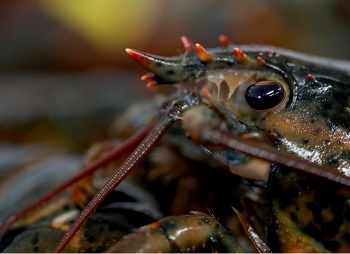
Long a lifeblood, South Shore fishing industry faces numerous challenges
Over his more than five decades fishing commercially, Frank Mirarchi has watched the business evolve from thriving and straightforward to complicated and diminished, with skyrocketing costs, foreign competition and changing regulations choking an industry synonymous with the South Shore. In the late 1960s, when he purchased his first of three successive boats, fish was abundant enough to make a solid living off of. “By 1985 or so, fishing was pretty bad,” Mirachi said. With profits dropping, he switched from having two other crew members to one. In 1994, the federal government stared limiting the number of days fishermen can be on the water to combat overfishing. Before, some spent 200 or more days fishing each year. Over the years, it was gradually reduced to 30. Mirarchi said this “wasn’t particularly successful”,,, >click to read< 08:54
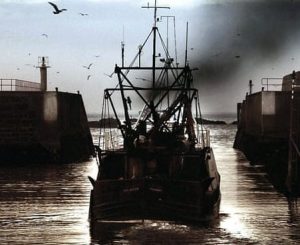
Fisheries bill: Changes would allow small vessels to spend more days at sea and land more catch
Fishing rights should be redrawn to give a higher quota to smaller vessels after Brexit, the Labour party is to propose in an amendment to the government’s fisheries bill. The changes would allow small boats to spend more days at sea and land more catch than they do at present, though catches would still be subject to negotiation with the EU on common fishing grounds. Under current allocations, two-thirds of the UK’s quota of fish under the EU’s common fisheries policy is controlled by three major multinational companies. >click to read<11:27

FAROE ISLANDS KEEP DAYS-AT-SEA INSTEAD OF QUOTAS
The Faroese Governments proposal to make relatively dramatic changes to the laws regulating fisheries in Faroe Islands will not go ahead. A proposal from the Government to adopt Quotas for the largest vessels in the Faroese fleet has been discussed in parliament however as there was no agreement on any aspects of the proposal it was dismissed by parliament.,,, The shelved Faroese government proposal was that larger vessels were to replace Days-at-Sea with Quotas. Absolutely no one within the Faroese fishing industry wanted to change from Days-at-Sea to a Quota system. The plan always intended that smaller boats out-with the above sizes would still operate under the current Days-at-Sea system.It was made very clear to the government that everybody in the fishing industry was angry at the proposal on quotas. click here to read the story 19:30
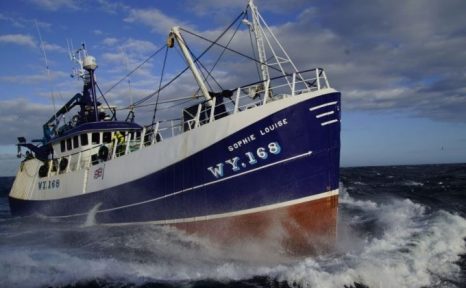
Are Days at Sea the Answer?
Recently, the argument that, after the UK has left the EU, effort control (days at sea limits) could replace quotas as the main management tool in the mixed demersal fisheries, has been finding some currency. It is not difficult to see the appeal. At a stroke, the discard problem would be solved, as vessels could land everything that they catch. The messy business of quota management, with its fixed quota allocations, swaps, leasing, top-slicing etc. could be dispensed with overnight. Instead, vessels would be given an annual allocation of days at sea. Full stop. In some versions of the theory, quota shares are converted into effort shares, which admittedly makes things more complex than a flat-rate number of days for every vessel in the fleet. But before we take the leap of ditching the messy quota system let’s have a look at the other side of the coin. There are a few reasons why effort might not be the road that we want to go down. Here are some of the counter-arguments: Read the article here 12:55
Scallops scuffle pitting small boats against big
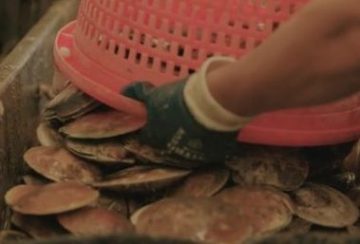 A disagreement over the right to fish for scallops off New England is pitting small boats against big ones in one of the most lucrative fisheries in the U.S. The federal government maintains different rules for the small- and big-boat scallop fisheries, though they work some of the same areas. Small boat fishermen say the conflict has arisen in the northern Gulf of Maine, a critically important fishing area stretching roughly from Boston to the border of Maine and Canada. At issue is the fact that the northern Gulf of Maine is fertile ground for scallops right now, and rules allow the bigger boats to harvest more of them. The smaller boats have a possession limit of 200 pounds, while the largest boats have no such limit, because they are regulated instead by a limited number of days at sea. Continue reading the article here 11:48
A disagreement over the right to fish for scallops off New England is pitting small boats against big ones in one of the most lucrative fisheries in the U.S. The federal government maintains different rules for the small- and big-boat scallop fisheries, though they work some of the same areas. Small boat fishermen say the conflict has arisen in the northern Gulf of Maine, a critically important fishing area stretching roughly from Boston to the border of Maine and Canada. At issue is the fact that the northern Gulf of Maine is fertile ground for scallops right now, and rules allow the bigger boats to harvest more of them. The smaller boats have a possession limit of 200 pounds, while the largest boats have no such limit, because they are regulated instead by a limited number of days at sea. Continue reading the article here 11:48
Days at Sea Cod Comeback: How The North Sea Fishery Bounced Back From The Brink
 Cod love the icy cold waters of the North Sea — and British people love eating cod.But a decade ago, it looked like people were eating the fish to the brink of collapse. Now the trend has turned around, and the cod are coming back.We pick up this fish tale, which seems to be on its way to a happy ending, at an early morning fish auction in Fraserburgh, Scotland, where buyers and sellers are lined up alongside hundreds of boxes containing cod, hake, monkfish, sole and every other kind of fish you can imagine from the North Sea. Read the rest here 22:48
Cod love the icy cold waters of the North Sea — and British people love eating cod.But a decade ago, it looked like people were eating the fish to the brink of collapse. Now the trend has turned around, and the cod are coming back.We pick up this fish tale, which seems to be on its way to a happy ending, at an early morning fish auction in Fraserburgh, Scotland, where buyers and sellers are lined up alongside hundreds of boxes containing cod, hake, monkfish, sole and every other kind of fish you can imagine from the North Sea. Read the rest here 22:48
Special Report – Catch Shares: Too often we call the devil by a different name – by Evan Connoly ACFN Contributor
 It was a strange sight to see, and one I had not since my childhood. Plymouth Rock loomed majestically over the ocean in the morning sun beside the town’s historic waterfront. Cold and raw; both the day and the feeling in my gut the more I learned about the changes in this town. The streets felt as though they were dying. American sweat and blood now trickled only thinly across those historic streets. In Plymouth I met with a group of men who remain fishing in the area, Read more here 08:39
It was a strange sight to see, and one I had not since my childhood. Plymouth Rock loomed majestically over the ocean in the morning sun beside the town’s historic waterfront. Cold and raw; both the day and the feeling in my gut the more I learned about the changes in this town. The streets felt as though they were dying. American sweat and blood now trickled only thinly across those historic streets. In Plymouth I met with a group of men who remain fishing in the area, Read more here 08:39
In the Guest Writers Column, Jay Andersson – The Reasons For The New England Groundfish Collapse Are An Inconvenient Truth For Regulators
 As federal disaster funds roll into New England and hopeful recipients line up to fight for what amounts to pennies on the dollar for the investments and livelihoods lost, the regulatory blunders that caused this crisis are being swept under the rug. The sad premise that individual ownership of the fish in the sea is a cure-all for fishery managment issues has been exposed for the lie that it always was, yet the issues caused by introducing this new system of effort controls for New England groundfishing remain unaddressed by bumbling regulators who seem to be unwilling to admit that sector allocations have been a dismal failure and cause more problems than they solve. Read more here 08:54
As federal disaster funds roll into New England and hopeful recipients line up to fight for what amounts to pennies on the dollar for the investments and livelihoods lost, the regulatory blunders that caused this crisis are being swept under the rug. The sad premise that individual ownership of the fish in the sea is a cure-all for fishery managment issues has been exposed for the lie that it always was, yet the issues caused by introducing this new system of effort controls for New England groundfishing remain unaddressed by bumbling regulators who seem to be unwilling to admit that sector allocations have been a dismal failure and cause more problems than they solve. Read more here 08:54
Catch Shares – BJ Brown Summed Up What Was Going To Happen In The Fishing Industry In Gloucester 4 Years Ago
 This was filmed in 2010 and it’s only gotten worse. What he predicted back in 2010 is about 10 times worse 4 years later. As I type this a fisherman just left my office. He is 52 years old and has fished his whole life. He is a stern man meaning he has no stake in what the owner of the boat may receive when he sells out his commercial fishing permits. He has only seen it get worse and worse and was telling me he has absolutely no idea what he could do for a living since all he knows is fishing. It’s sad and it is despicable what they did when they instituted Catch Shares and privatized the ocean and fish. Read more@goodmorninggloucester 21:47
This was filmed in 2010 and it’s only gotten worse. What he predicted back in 2010 is about 10 times worse 4 years later. As I type this a fisherman just left my office. He is 52 years old and has fished his whole life. He is a stern man meaning he has no stake in what the owner of the boat may receive when he sells out his commercial fishing permits. He has only seen it get worse and worse and was telling me he has absolutely no idea what he could do for a living since all he knows is fishing. It’s sad and it is despicable what they did when they instituted Catch Shares and privatized the ocean and fish. Read more@goodmorninggloucester 21:47
Back in 2009 I started to collect the stories and add them to a thread on Cape Ann Online as sort of a journal and record for those who might have said they didn’t see this coming. There are three pages of articles from fishermen and about how it was and has decimated our working port and independent fishermen. Click here for the list of articles (3 pages worth)


































